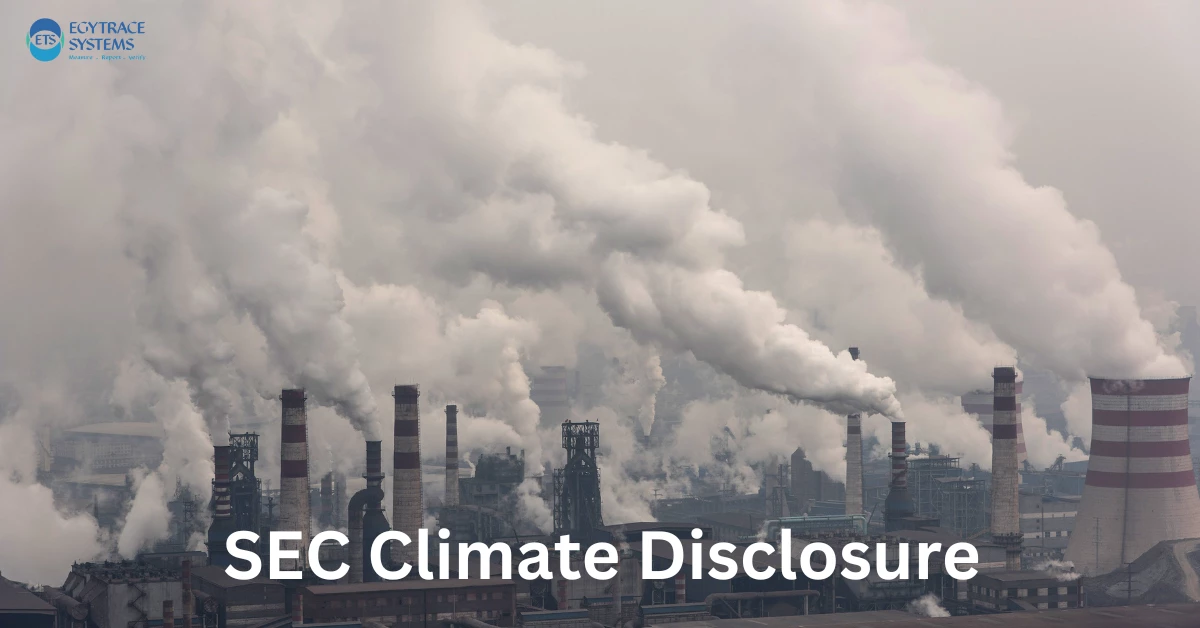SEC Climate Disclosure
The Securities and Exchange Commission (SEC) has introduced a crucial rule that mandates companies disclose detailed information regarding their climate-related risks. This SEC climate disclosure rule is aimed at increasing transparency for investors and stakeholders, providing a clearer picture of the financial implications tied to climate change. With growing concerns about sustainability and the environment, this move represents a significant shift in how businesses approach climate risks, GHG emissions, and sustainability reporting.
Understanding the SEC Climate Disclosure Rule
The SEC climate disclosure rule is designed to provide investors with a transparent view of how climate-related risks and factors affect businesses’ operations and finances. The rule requires publicly traded companies to disclose detailed information about their environmental practices, including greenhouse gas (GHG) emissions, risk management strategies, and plans to mitigate climate-related risks. This initiative is in response to growing calls for businesses to integrate climate considerations into their financial and operational strategies.
Key Elements of the SEC Climate Disclosure Rule:
- Climate Risk Reporting: Businesses must disclose how climate risks impact their operations, financials, and supply chains. This includes any risks from extreme weather events, regulatory changes, or shifts in market demand due to climate factors.
- Emissions Data Disclosure: One of the most important aspects of the SEC rule is the requirement to disclose Scope 1 (direct) and Scope 2 (indirect) GHG emissions. This data helps investors understand the carbon footprint of companies and their commitment to reducing emissions.
- Climate-related Governance: Companies must report on their governance structure for managing climate risks, including the role of board members in overseeing climate-related issues and the company’s overall strategy for addressing climate change.
- Financial Impacts of Climate Risks: The rule mandates that companies report on the financial impact of climate risks, such as the costs associated with extreme weather events, regulatory fines, or increased operational costs due to climate change.
This increased disclosure allows investors to evaluate a company’s preparedness for climate change and its long-term sustainability prospects. Companies are now required to include this information in their regular filings, enhancing the accessibility of climate-related data and making it easier for investors to compare different organizations’ approaches to sustainability.
Aslo :What is SECR Reporting?
The Broader Impact: SEC ESG Disclosure Requirements
In addition to climate-specific reporting, the SEC’s rules extend to broader Environmental, Social, and Governance (ESG) disclosures. These requirements focus on ensuring that companies disclose relevant information about their ESG strategies, which include not only environmental risks but also social factors, such as labor practices and governance structures. Investors are increasingly focusing on ESG criteria to guide their decision-making processes, and the SEC’s enhanced reporting rules aim to standardize and improve the quality of ESG data across industries.
The SEC climate disclosure and ESG requirements work together to promote a more transparent, responsible, and sustainable business environment. By complying with these regulations, companies demonstrate their commitment to addressing environmental and social risks and aligning with the growing global trend towards sustainability.
The Role of Digital Solutions in Complying with SEC Climate Rules
For businesses looking to meet these new requirements, digital solutions are becoming an essential tool. EgyTrace, a leading company in Egypt, helps businesses adopt sustainable practices and navigate complex regulations through advanced digital solutions. By automating the processes involved in carbon tax compliance and greenhouse gas emissions tracking, companies can more easily manage and report their emissions data, making it simpler to comply with both SEC climate disclosure rules and international regulations like the EU Carbon Tax.
Incorporating automated systems like EgyTrace’s MRV system enables companies to track their carbon emissions in real time, providing accurate data for SEC filings and ESG reports. These digital tools also help businesses reduce their environmental impact, ensuring they are not only compliant with regulations but also contributing to global sustainability efforts.
Key Benefits of Embracing SEC Climate Disclosure Rules
- Enhanced Investor Confidence: By openly reporting on climate risks and emissions, companies build trust with investors who are increasingly prioritizing sustainability in their decision-making processes.
- Operational Efficiency: Tracking and reporting on emissions can help companies identify inefficiencies in their operations and reduce costs associated with energy use, waste, and supply chain disruptions.
- Sustainability Leadership: Adopting and adhering to SEC climate rules positions companies as leaders in sustainability, setting them apart from competitors in a market that is progressively focused on environmental responsibility.
- Regulatory Compliance: Meeting the SEC’s climate disclosure and ESG reporting requirements ensures that companies avoid potential legal risks and penalties related to non-compliance.
Conclusion: Adapting to the SEC Climate Disclosure Rule with EgyTrace
As the SEC climate disclosure rule becomes a mandatory part of financial reporting, businesses worldwide must adapt to these changes and embrace sustainable practices. By complying with SEC’s reporting standards, companies not only enhance their transparency but also strengthen their long-term viability by addressing climate-related risks head-on.
At EgyTrace, we help businesses navigate these evolving regulations and embrace sustainability. Our advanced digital solutions, including automated carbon tax compliance tools, provide companies with the data and insights needed to comply with the SEC climate disclosure requirements. As the global demand for climate transparency rises, businesses that proactively adopt these strategies will be better positioned for long-term success.
Contact EgyTrace today to learn more about how we can assist your business in meeting SEC climate disclosure rules and reducing its carbon footprint.

